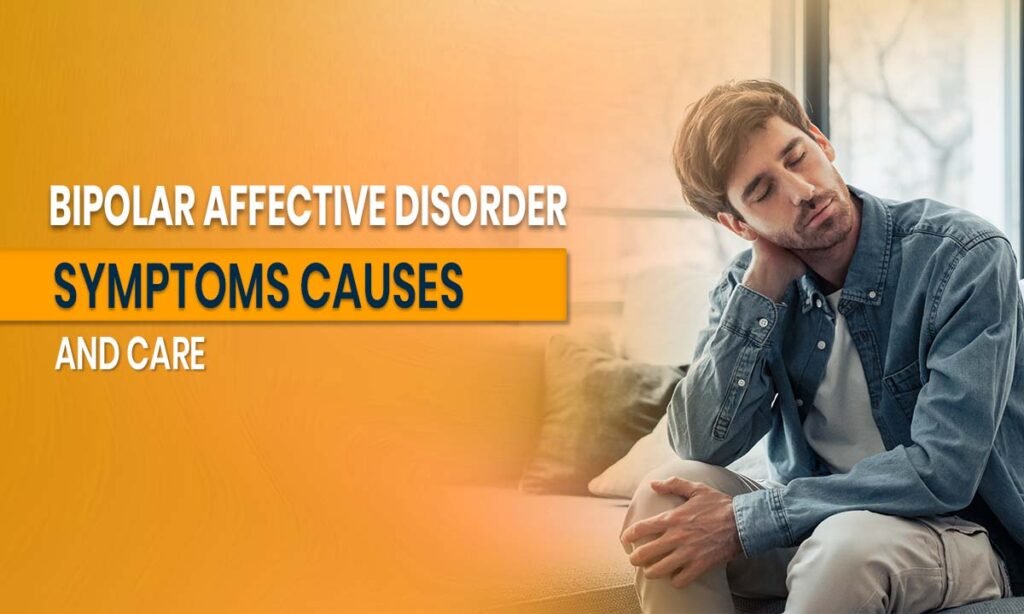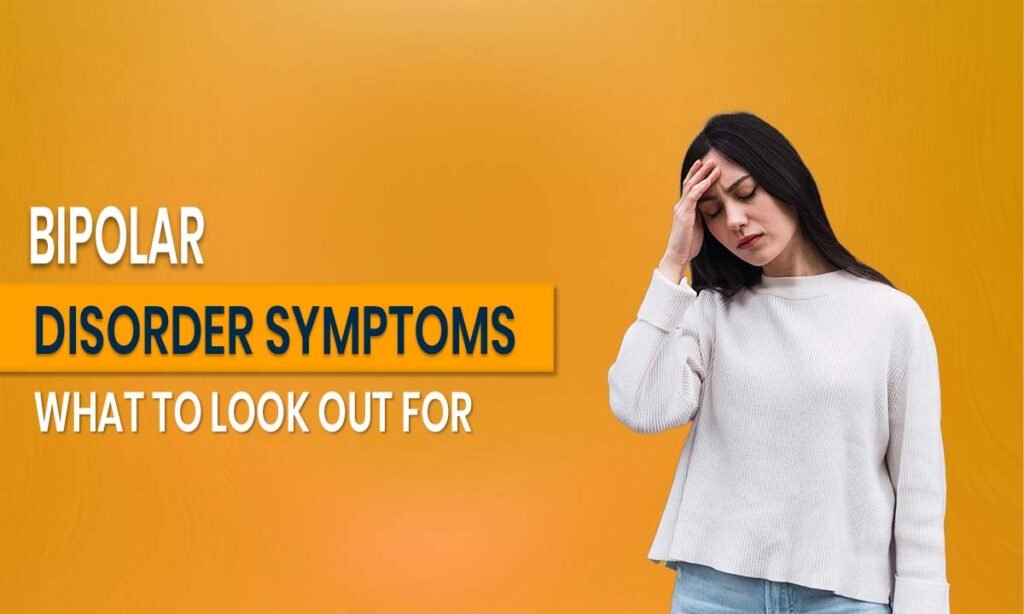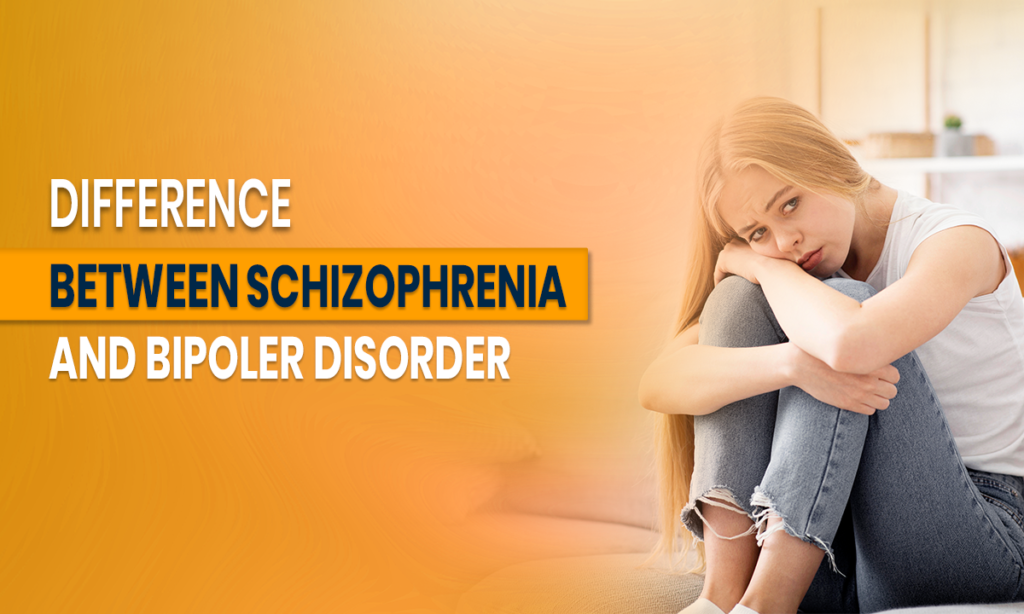
Bipolar affective disorder, commonly known as bipolar disorder, is a mental health condition that causes intense fluctuations in mood, energy levels, and behavior. People with bipolar disorder experience extreme emotional highs, known as mania, and deep emotional lows, called depression. These shifts in mood can greatly impact a person’s daily life, relationships, and overall well-being. This blog post aims to provide a detailed overview of bipolar disorder symptoms, the potential causes, and the various bipolar treatment options available.
What is bipolar affective disorder?
Bipolar affective disorder is a chronic condition marked by dramatic mood swings that can range from extreme euphoria or mania to deep feelings of sadness and hopelessness, commonly referred to as depression. These emotional episodes, also known as manic and depressive episodes, are much more intense than the typical mood fluctuations experienced by most people. The bipolar disorder symptoms can interfere with daily functioning and require consistent management.
Key Symptoms of Bipolar Disorder
The symptoms of bipolar disorder vary from person to person but generally fall into two categories: manic (or hypomanic) episodes and depressive episodes.
Manic Episodes:
- Increased energy levels or restlessness.
- Euphoria or extreme happiness, often out of proportion to the situation.
- Impulsive behavior, such as overspending or reckless driving.
- Rapid speech and racing thoughts.
- Decreased need for sleep.
Depressive Episodes:
- Persistent feelings of sadness or hopelessness.
- Fatigue, lack of energy, and feeling “slowed down.”
- Difficulty concentrating or making decisions.
- Changes in appetite and sleep patterns.
- Thoughts of death or suicide.
These episodes can last for weeks or even months and can severely affect one’s ability to function at work, school, or in relationships.
Causes and Risk Factors of Bipolar Affective Disorder
While the exact cause of bipolar affective disorder is still not completely understood, several factors are believed to play a role in its development:
- Genetics: Bipolar disorder tends to run in families. People with a close relative, such as a parent or sibling, who has bipolar disorder are more likely to develop it.
- Brain Chemistry: Chemical imbalances in the brain, particularly with neurotransmitters like dopamine and serotonin, are believed to contribute to the mood swings seen in bipolar disorder.
- Environmental Factors: Stressful events, such as trauma, loss of a loved one, or major life changes, can trigger the onset of bipolar episodes in those predisposed to the disorder.
Bipolar Disorder Treatments
Managing bipolar disorder typically involves a combination of medications and psychotherapy. The goal of treatment is to stabilize mood swings and improve quality of life. The most common bipolar treatment medications include:
1. Mood Stabilizers
Mood stabilizers are considered the cornerstone of bipolar disorder treatment. These medications help prevent the extreme highs and lows associated with the condition.
- Lithium is a widely used mood stabilizer that has been proven effective in preventing manic and depressive episodes.
- Valproate (Depakote) is often used for managing manic episodes and is an alternative to lithium for some individuals.
2. Antipsychotic Medications
For individuals who experience severe manic episodes, antipsychotic medications may be prescribed. These can help to reduce symptoms like delusions and hallucinations.
- Olanzapine (Zyprexa) and aripiprazole (Abilify) are examples of antipsychotic drugs used for bipolar disorder treatment.
3. Antidepressants
In some cases, antidepressants may be used to treat the depressive phase of bipolar disorder. However, caution is required, as antidepressants can sometimes trigger a manic episode, especially if not combined with a mood stabilizer.
4. Psychotherapy
Psychotherapy, especially cognitive-behavioral therapy (CBT), helps individuals manage their condition by identifying and changing negative thought patterns and behaviors. Therapy also helps in building coping strategies for managing stress, improving relationships, and preventing relapse.
ICD-10 Classification of Bipolar Disorder
The International Classification of Diseases (ICD-10) categorizes bipolar disorder under the code F31. This classification includes:
- Bipolar affective disorder (F31.0 to F31.9), which covers both manic and depressive episodes.
- Bipolar schizoaffective disorder (F25), a condition in which symptoms of both bipolar disorder and schizophrenia are present.
- Bipolar disorder, mixed type, where both manic and depressive symptoms occur simultaneously.
The Importance of Early Diagnosis and Regular Monitoring
Early diagnosis and treatment of bipolar affective disorder are crucial for managing the condition effectively. Left untreated, the disorder can cause significant disruptions in a person’s personal, social, and professional life. Regular monitoring by healthcare providers helps ensure that treatment remains effective and that mood episodes are managed.
Conclusion
Bipolar disorder is a serious and complex mental health condition, but with proper treatment and care, individuals with the disorder can live fulfilling lives. Early diagnosis, a combination of medications, and psychotherapy are critical for managing symptoms. Whether through bipolar treatment medications, mood stabilizers like lithium, or therapies such as CBT, a structured treatment plan can help individuals maintain stability and improve their quality of life.
If you or someone you know is dealing with bipolar disorder symptoms, seeking professional help is the first step toward managing the condition effectively. With the right treatment plan in place, individuals can lead productive lives and manage their symptoms with the support of healthcare providers and loved ones.
Luxury Care at Athena Luxus: Why Choose Us?
At Athena Luxus, we provide exclusive and premium mental health services for individuals struggling with bipolar affective disorder. Our luxury rehabilitation centre offers a comfortable and supportive environment, ensuring that your mental health journey is a top priority. Our expert team of psychologists and doctors specialises in understanding the nuances of bipolar disorder treatments, offering customised care plans designed to suit your individual needs.
Patient Experiences
- Anjali Ramesh: I was struggling to control my moods and didn’t know where to turn. Athena Luxus helped me gain control with their exclusive bipolar treatment programmes. I’m finally feeling balanced again.
- Rahul Sharma: The support I received at Athena Luxus was nothing short of life-changing. Their personalized approach to my bipolar treatment made all the difference.
- Priya Verma: After years of struggling, Athena Luxus provided me with the care I needed. The therapists were amazing, and the luxury environment was perfect for my recovery.
- Vishal Kumar: I had tried other places, but nothing worked until I came to Athena Luxus. Their focus on bipolar treatment drugs and psychological care made me feel better than ever.
Contact Us Today for Help
If you’re facing challenges with bipolar disorder or addiction, we’re here to help. Athena Luxus offers exceptional care and specialized treatment for mental health concerns. Experience top-tier rehabilitation and support—schedule your consultation today.
We offer personalized treatment plans for those dealing with these challenges. Our specialized services include
Alcohol Detox Treatment
Cocaine Addiction Treatment
Drug Addiction Treatment
Heroin Addiction Treatment
Frequently Asked Questions (FAQ)
What is the main cause of bipolar disorder?
The main causes include genes, brain chemicals, and life problems like stress or trauma. Family history and environment also play a big role.
Can you recover from bipolar?
Yes, with proper treatment, people with bipolar disorder can manage their symptoms and lead fulfilling lives.
What does it feel like to have bipolar disorder?
Yes, with the right treatment, people with bipolar disorder can control their symptoms and live happy, meaningful lives.
How does bipolar disorder affect people’s lives?
Bipolar disorder can disrupt relationships, work, and routines, making it hard to stay balanced and emotionally stable in everyday life.
Is bipolar caused by stress?
Stress may make bipolar symptoms worse or bring them on, but it’s not the main cause of the disorder.

